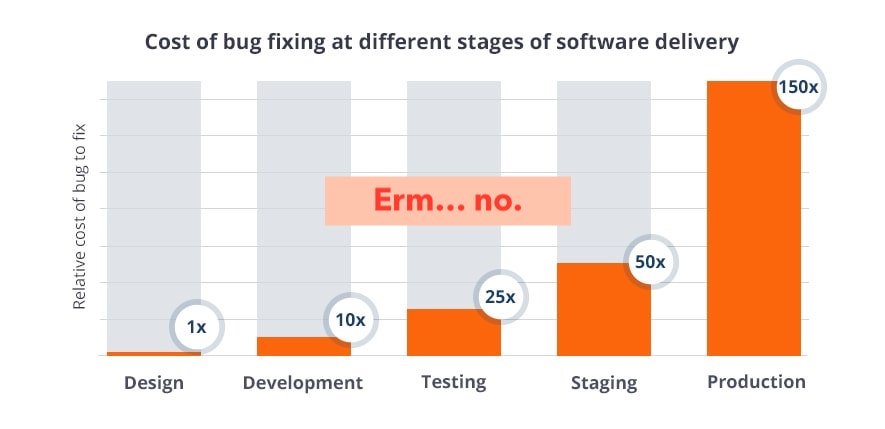The feature we were debating was for a mobile app that didn’t have a large number of users at this stage. That is the second piece to consider: customer impact. For systems that have broad customer impact, more consideration needs to be taken. If millions of users are going to be affected by a certain identity verification system, perhaps more thought should have been given. This is why as products scale, feature development does take a little longer.
Even when there are changes that are high impacting, there are tricks to go faster. It is even more important to learn about unknowns and arrive at informed decisions in these products. A simple way to get there is to reduce scope of changes. Scope can be reduced by either limiting customer exposure or breaking the change down to small iterations.
If you are running a project, always ask your team how something can be delivered in half the time. You can’t bend time and space; things will take longer than predicted. But you can have achieve outcomes sooner than you think.
Dependencies and customer impact
Many tend to be very risk averse, especially in high revenue environments. Like I talked about in “Companies Grow” post, this can become an attribute of growing companies, even to the point of rejecting innovative ideas altogether. More planning becomes the answer to please this conservativeness.
Moreover, developers are always looking to develop the ideal system; they hate writing throwaway stuff. There is natural inertia towards being careful with every change.
We should always keep in mind that these actions have a price attached to it. Being agile fundamentally requires us to try things, learn from them, and try again. We are always wiser for having reworked our solutions with new insight. Mature teams understand this. They aren’t afraid to test solutions, validate assumptions and go back to the drawing board. They aren’t afraid to fail. Like Luke reminded me, there is just always a chance of failure.
Lastly, remember… (maybe this is a construction industry thing) …as my house builder points out, “a plan is just a starting point.” Actual work lays ahead of you.

















Solitude breaking social norms | Opinion